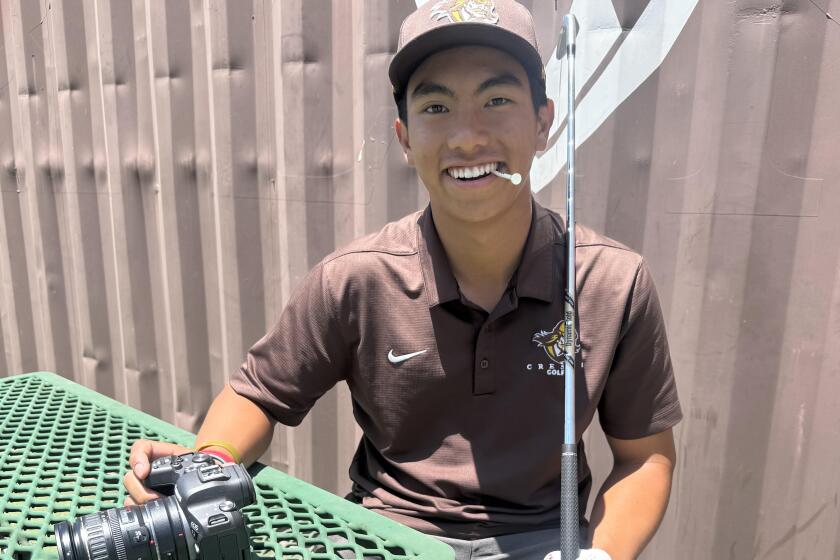Officiating Will Be of a Similar Stripe
- Share via
The result of the NFL’s new system to select officials for the Super Bowl will end up looking a lot like the old system.
After controversial officiating during last year’s playoffs, the league revamped this postseason’s assignments, rewarding the performance of entire crews instead of individual “all-stars.”
However, because the NFL’s experience requirements for the Super Bowl trumped the desires to keep the crews intact, the majority of the group working Sunday’s game will be new additions.
Referee Ed Hochuli’s crew was rated No. 1 this season, but four members were ineligible for the Super Bowl because they didn’t meet all the criteria. Umpire Steve Wilson had not worked a conference championship game, and side judge Bill Vinovich, line judge John Hussey and back judge Scott Helverson do not have five years of NFL experience.
So umpire Jeff Rice, line judge Ben Montgomery, side judge Laird Hayes and back judge Scott Green will join Hochuli, head linesman Mark Hittner and field judge Tom Sifferman.
“The crew that’s working the final game, there were only three of the [original] seven that qualified,” said Mike Pereira, the NFL’s senior director of officiating. “That’s OK with me. It’s still the fact you get into a Super Bowl, you’re going to have a core of a crew, three guys together.”
The crew concept was intended to promote excellence through teamwork.
“The premise is we’re not looking for best officials, we’re looking for best officiating,” Pereira said.
Pereira referred to a play in a wild-card game in which the back judge called pass interference, the field judge came in and said there was insufficient contact to call a penalty and the back judge picked up the flag -- correctly, in Pereira’s judgment.
“That’s maybe not going to happen if it’s your first time working with a guy,” Pereira said.
But when it came to the assignments for the biggest game in American sports, the NFL, with a 25% turnover among the ranks in the last two years, ultimately chose to go with officials who had been there before rather than officials who had been together.
“There’s something to be said for experience,” Pereira said. “The point was brought up to me by different people: ‘Why isn’t everybody eligible to move on? When you’re a [football] team you might have a rookie contributing and helping them get to the playoffs. Why isn’t it the same in officiating?’
“In officiating, you can’t out-physical people. With the 26 first- and second-year guys we have, we felt we needed experience.”
Pereira said the complete crews that worked the earlier rounds of the playoffs produced better-officiated games. The strongest support of his argument might be the lower volume of complaints on Monday morning talk-radio shows.
A year ago the playoffs were marred by several bad calls, most notably an incorrect overruling of a pass interference penalty after a botched field-goal attempt that cost the New York Giants a chance to win their wild-card game against the San Francisco 49ers.
“Last year at this time I was hiding underneath the building here,” Pereira said. “I felt like I was Saddam Hussein. They had me in the bunker.”
More to Read
Go beyond the scoreboard
Get the latest on L.A.'s teams in the daily Sports Report newsletter.
You may occasionally receive promotional content from the Los Angeles Times.










